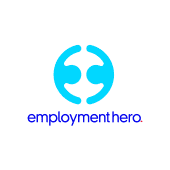
Questions you should be asking when hiring for remote-based jobs
Remote work has transformed all aspects of our professional lives, and this includes interviewing and recruitment. Video conferencing has enabled businesses and applicants to carry out an interview process in a fairly similar way to in-person interviews, but there is much that businesses need to consider and look out for when recruiting and interviewing for remote positions - the typical interview questions no longer cut it.
How can businesses conduct the best and most insightful interviews to ensure candidates are comfortable with remote working? And make sure that you are happy the candidate is the perfect fit for the remote working role?
As a hiring manager or recruiter, you will not be physically present to assess the applicant, and you might not ever physically work with them. Therefore, it is crucial to take the time to really get to know your future candidates in a virtual setting.
Ask the candidate about your company and ethos, their productivity when remote working, how they communicate remotely, and the safety requirements of working from home or another remote location. Here we’ve outlined some of the key questions you should ask a candidate covering those areas.
Showcasing a deep understanding of your company
Start by asking the candidate questions about your company. When you find a candidate that has a deep understanding of your company’s values, goals, and competitors, you strike gold. A great candidate will be able to tell you all about your business and express why the thought of them being a part of the team makes them excited. Ask questions, such as:
- What draws you to this industry?
- How would you embody our company values in this role?
- What do you think the main goals of our company are?
- What do you think we could be doing better?
- How do you think working for our company will help you achieve your career goals?
Setting the bar for productivity whilst remote working
If you’re hiring someone who is going to work entirely or partially at home, you want to make sure that they’ve considered remote working styles. Questions covering productivity while working remotely, and touch on work/life balance, are essential to finding out if you can be reassured about their abilities to work autonomously outside of the workplace. Ask questions, such as:
- How do you like to manage your workloads when working remotely?
- What measures do you put in place to prevent the blurring of work and home life?
- What programs or software do you find the most helpful for remote work?
- Describe a situation where you have had to overcome difficulties with productivity when working remotely.
- Describe a situation where you’ve had conflicting priorities and autonomously took actions to work through them.
Staying in touch
Productivity and communication skills are easily the two most essential skills for remote workers. Without great communications skills, the candidate will have a difficult time during onboarding and induction.
Your employees should have an open flow of conversation with their managers and colleagues, feel comfortable sharing ideas virtually, and know how to manage the tone of their digital voice. Bonus points go to the interviewee who can discuss strategies and methods to actively support their colleagues.
Working safely from home
A vital topic to cover during remote interviewing is remote working safety and requirements. Make it clear at the beginning of this conversation that any offer of employment would not depend on these answers.
These questions are less about the person’s suitability for the job, and more about evaluating the health and safety of the candidate’s workspace. The answers to these questions can give employers the information they need to know about planning for the applicant, should they take the position.
It is important for employers to ask candidates about their workspace, the equipment they might need, their access to first aid kits and understanding of fire safety whilst working from home.
Don’t forget the classic and practical questions
Remember to ask candidates practical and logical questions about their role and when they can join you. Find out about the candidate’s notice period, salary expectations, and why they want to work for you, for example. Close the interview by asking an unexpected question. This can be valuable in showing the candidates personality, and their ability to think on their feet.
To find out more about how to interview candidates for remote roles, view Employment Hero’s report on the 101 questions companies should ask.


